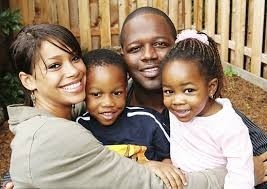Family Safety At Home

Many parents feel that the safest place for their families is in their own home. According to research conducted by the Home Safety Council in 2004, an average of more than 12 million non-fatal injuries occurred in U.S. homes each year between 1997 and 2001. There are many things families can do to prevent these injuries and problems.
Infant and Toddler Safety
Households with infants and toddlers need to take several steps to prevent harmful injuries to little ones. For example, use safety gates at the top and bottom of stairwells, use safety straps on strollers and high chairs, put babies to sleep on their backs and keep toys, pillows and blankets out of cribs. Use plastic covers on electrical plug-in outlets, cut toddlers' food into small bites, place blind cords high enough where toddlers cannot reach them and always wipe up spills to prevent slips and falls. Prevent choking hazards by using an easy rule--if a toy or item can fit into a toilet paper tube, it is not safe for toddlers or babies.
Water Safety
Many people do not realize the need for water safety precautions even in houses without pools or hot tubs. Never leave babies or small children alone in a bathtub. A simple slip or fall can turn into a drowning tragedy. Use toilet lid locks and always test bath water temperatures to prevent scalding. Always place outdoor buckets upside down so they cannot collect water, and stay within an arm's reach of young children when they are near bodies of water.
Holiday Safety
Holidays can be joyous times, but they can quickly change into a somber occasions if an accident occurs. The Mississippi Red Cross advises families to test holiday lights, inspect chimneys before using fireplaces and be cautious with portable space heaters. Never place candles on Christmas trees.
Poison Safety
Common household items, such as cleaners and medicines, accidentally poison some children. Use child safety locks or latches on cabinets that store cleaning products and other poisons. Keep medicine and alcohol locked up and out of reach from children. Write down the number to poison control (800-222-1222) and keep it near the family telephone.
Disaster Preparation
Families should always be prepared for disasters and emergencies, including fires, power outages and natural disasters. Install fire and smoke alarms throughout the house and practice fire drills so all family members know how to escape a burning house. Prepare an emergency box that has a first aid kit, bottled water, flashlights and a battery-operated radio in the event of a power outage. Teach children how to stand under door frames if the house is in an earthquake-prone area.
Infant and Toddler Safety
Households with infants and toddlers need to take several steps to prevent harmful injuries to little ones. For example, use safety gates at the top and bottom of stairwells, use safety straps on strollers and high chairs, put babies to sleep on their backs and keep toys, pillows and blankets out of cribs. Use plastic covers on electrical plug-in outlets, cut toddlers' food into small bites, place blind cords high enough where toddlers cannot reach them and always wipe up spills to prevent slips and falls. Prevent choking hazards by using an easy rule--if a toy or item can fit into a toilet paper tube, it is not safe for toddlers or babies.
Water Safety
Many people do not realize the need for water safety precautions even in houses without pools or hot tubs. Never leave babies or small children alone in a bathtub. A simple slip or fall can turn into a drowning tragedy. Use toilet lid locks and always test bath water temperatures to prevent scalding. Always place outdoor buckets upside down so they cannot collect water, and stay within an arm's reach of young children when they are near bodies of water.
Holiday Safety
Holidays can be joyous times, but they can quickly change into a somber occasions if an accident occurs. The Mississippi Red Cross advises families to test holiday lights, inspect chimneys before using fireplaces and be cautious with portable space heaters. Never place candles on Christmas trees.
Poison Safety
Common household items, such as cleaners and medicines, accidentally poison some children. Use child safety locks or latches on cabinets that store cleaning products and other poisons. Keep medicine and alcohol locked up and out of reach from children. Write down the number to poison control (800-222-1222) and keep it near the family telephone.
Disaster Preparation
Families should always be prepared for disasters and emergencies, including fires, power outages and natural disasters. Install fire and smoke alarms throughout the house and practice fire drills so all family members know how to escape a burning house. Prepare an emergency box that has a first aid kit, bottled water, flashlights and a battery-operated radio in the event of a power outage. Teach children how to stand under door frames if the house is in an earthquake-prone area.
- it81f2d3c7b57c8bd367f887f1d092c3c0.jpg
- fu69945231f2e004b51613346cbb23b60c.jpg
Videos
References
http://www.ehow.com/about_6599902_family-safety-home.html
https://encrypted-tbn2.gstatic.com/images?q=tbn:ANd9GcSd8460IUauFnRA0z0PhY3XvY1glLu-Zl0ANK1yDBaIrqODN8bx
http://zionssecurity.com/wp-content/uploads/2014/07/family-safety.jpg
http://www.youtube.com/watch?v=aKcewddkdkI
http://www.youtube.com/embed/kTAa6daDYG0